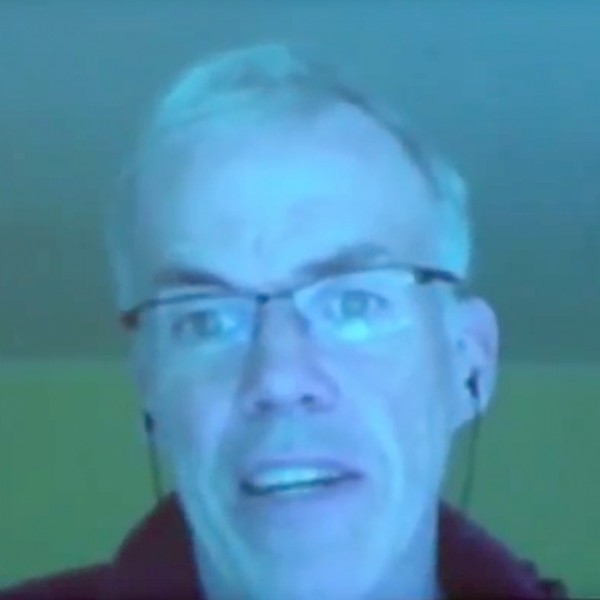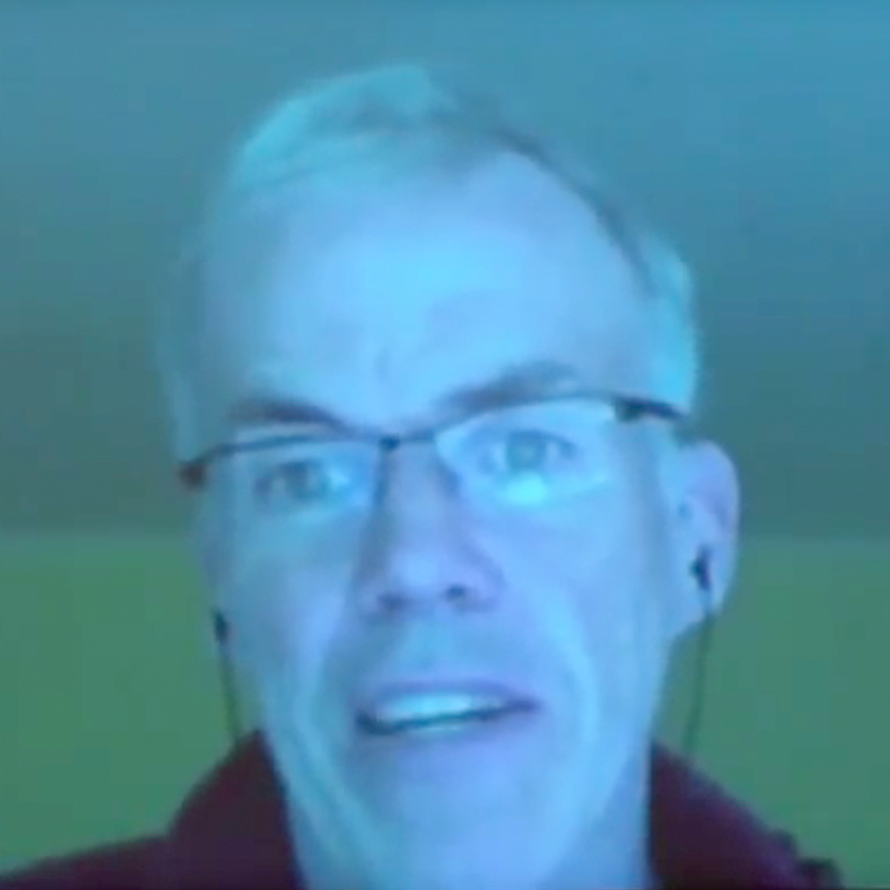
“Five to ten years ago we thought the transition was going to be from coal, to natural gas as some sort of bridge fuel, onto renewables,” said 350.org’s Bill McKibben in a message to Rhode Island, “and now, sadly, we realize we can’t do that in good faith, because natural gas turns out not to work that way, as a bridge fuel.”
McKibben, a leading voice on the dangers of climate change, was speaking in a video message to Senator Sheldon Whitehouse’s annual Rhode Island Energy & Environmental Leaders Day” conference at the Rhode Island Convention Center last Friday.
McKibben started his eight minute message with praise for Whitehouse, calling him an “indefatigable leader,” along with Senator Bernie Sanders, around climate change issues. McKibben called Whitehouse’s Friday dialogues on the Senate floor against climate change and ExxonMobile “relentless” and “remarkable.”
“There are moments when I hope that his last name turns out to be a key to his and our future, but that’s for another day,” said McKibben.
But McKibben was also relentless in his condemnation of natural gas.
Natural gas, said McKibben, “turns out to be a dead end, not a bridge to the future but a kind of rickety pier built out into the lake of hydrocarbons. So we’ve got to make the transition to renewables now, and fast.
“We have to forget about bridges and make that leap.”
Earlier that day, during a question and answer session, Senator Whitehouse once again declined to speak out against the natural gas infrastructure projects currently threatening Rhode Island’s ability to meet carbon and greenhouse gas reduction goals. Greg Gerritt, of ProsperityforRI.com, confronted Whitehouse, saying that the “resistance,” those engaged in front line battles against fossil fuel infrastructure, was ultimately going to have a greater effect than the carbon tax that Whitehouse champions.
“People are saying no more fossil fuel pipelines, no more power plants, no more compressor stations, and they’re putting their bodies out there,” said Gerritt, “I want us to think about how the dark money plays out in a place like Rhode Island where you can talk about climate change, but you can’t actually stop anything.
“The politicians are all saying, ‘even though we know that if we build this we can’t ever meet our carbon goal, we still want to build a power plant.’ And I want to know what are we going to do so that on the ground, here in our own communities, that this power of the fossil fuel industry gets stopped.”
Whitehouse countered that his job in the Senate “is to try to solve this in a place where it will have the most powerful effect that it can, across the board. I will never win this fight, from where I sit, plant by plant. I just won’t, can’t. Too many of them, too much going on, and frankly there are hundreds of others that are being built while some are being protested, there are hundreds of other pipelines being used while one is being protested.
“It’s not effective, to, in my view, uh, it makes a difference, it sends a message, I don’t undercut what people are doing. I think what we did with Keystone helped send a big message, but my job, I think, is two things:
“One, fix that problem of the huge subsidy [for fossil fuel companies] because $700 billion a year or $200 billion a year sends such a powerful message through the entire economy,
“The second is, I see Meg Curran here, the chairman (sic) of the Public Utilities Commission, and we’re working with them, we’re working with FERC, we’re working with the ISO, we’re working with NEPOOL group, to try to make sure that the rules for these siting things, get adjusted. because the rules for these siting plans leave out the enormous cost of carbon.
“So for me, it’s these federal ground rules, to make them responsive to clean energy, to get them to reward the cleanness of clean energy, and to make fossil fuel pay its cost… that’s where I’m focused.”
However, if we are to heed McKibben’s video message, then Whitehouse’s focus seems like a small step, not the leap that McKibben says we need.
“The good news,” said McKibben, “is the distance we have to leap is shorter than we thought because the engineers have done such a good job with renewable technology. During the last ten years the price of solar panels dropped eighty percent. There’s not an economic statistic on our planet more important than that.
“What it means is that we now have a chance, an outside chance, of getting ahead of the physics of climate change. It would require a serious mobilization and a huge effort.”
McKibben has written about what such a mobilization would look like in the New Republic that is worth a read.
“I think we’re going to need real, powerful leadership in order to help us, as FDR helped us once upon a time to take those steps in the right direction.
“The question is not, ‘Are we going to do this?’ Everyone knows that 75 years from now we’ll power our planet with sun and wind,” said McKibben, “The question is ‘Are we going to do it in time to be able to slow down climate change?’ … It may be the most important question that humans have ever faced.
“I wrote the first book about it all back in 1989. The cheerful title of that book was The End of Nature. I fear that not much has happened since to make me want to change the title.
“We’re in a very deep hole,” said McKibben, “and the first rule of holes is to stop digging for coal, for oil or gas and start instead to take advantage of all that green power coming from above from the sun and the wind that we’ve been wasting for so long.”

